Many people experience the problem of a dry scalp at some point in their lives. When you run your fingers through your hair, you realise that your scalp is completely dry.
We're assuming you're one of them, since you're on this page. If not, why don't you send your friend who has the problem over to this page?
So you're not alone. The problem, however, is often finding the reason behind it skin problem. By finding the culprit, you can avoid it much more easily in the future.
[lepopup slug='optin skin problems']However, there can be several reasons, such as:
- Irritation with medication
- Skin disease as psoriasis
- Hypersensitivity to certain products, such as shampoo or conditioner
Dry scalp often appears for the same reasons. In many cases, the problem is that we fill our scalp with all kinds of boring chemicals and synthetic preservatives on a daily basis. Not only does this make our hair tired and flat, but it also takes its toll on the scalp.
Luckily, there are natural remedies that can quickly solve the problem.
You can achieve great results with just a few products. Clean products like coconut oilworks as a lotion and you can even get rid of dandruff and other skin problems.
Block "156904" not found
Why do you get a dry scalp?
As mentioned, there can be a number of different causes. In many cases, it's simply the scalp becoming chemically fatigued.
In today's Denmark, we may also have a tendency to wash our hair more than is good for us. The many hair washes with different shampoos can remove the scalp's natural fat production and thus make the scalp dry.
A dry scalp is mainly characterised by itching and flaking. In some cases, it can even contribute to increased hair loss.
By far the most common cause of a dry scalp is that the right amount of natural oil is not present. That is, the sebum (the skin's own oil). This means that both the natural oil in the hair and scalp is insufficient. There can be several reasons for this, but in most cases it is usually relatively easy to treat and can also be prevented.
There is some misunderstanding about the most common causes of dry scalp. Many people point out that it has to do with an abundance of oil from the sebaceous glands. In other words, overproduction. In reality, scalp dryness is caused by the opposite.
The body's natural oil is secreted by sebaceous glands on the scalp. These are necessary to maintain a healthy balance of natural lubrication in both hair follicles and the scalp. When a high amount of this natural oil is not present, hair becomes brittle and the scalp becomes dry and flaky.
One of the main reasons for this is the use of harsh shampoos.
Basically, the chemicals in shampoo strip too much of the natural oil from the hair and scalp. This often results in an itchy and flaky scalp. Furthermore, hair can appear to lack lustre.
Other causes of a dry and itchy scalp
Other reasons, especially in Denmark, include the hard water we often use. Most of Denmark has what we call hard water, which basically means that it contains a lot of calcium. When the water is hard, you also use a lot of tomatically more soap in your hair.
tomatically more soap in your hair.
You've probably tried washing your hair in Norway or Sweden, for example, and realised how little soap was needed. Here they usually have very soft water. Hard water can therefore be a contributing factor to scalp dryness.
So, while there are shampoos recommended for dry hair and scalp, they usually won't work effectively if hard water is used for washing and rinsing. However, there is the option to purchase a water filter that can be installed on the shower head to remove some of the mineral content from the water. This will minimise the hard water and allow the natural level of oil in the scalp and hair to benefit.
You almost guessed it. Didn't you? Because diet can also play a role in the development of this condition. Like all functions in the body, the sebaceous glands require the right nutrients to function properly. Without the right nutrients, the glands won't produce the essential oils your skin and hair need.
The lack of a good and healthy diet can result in an itchy scalp and dry hair.
Here in the North, we also tend to experience cold months during winter. Believe it or not, a dry and harsh winter can be just as drying and hard on your hair and scalp. So, especially in winter, your scalp often needs a little extra conditioning love.
Get rid of dry scalp
A natural step towards an extremely dry scalp is to stop washing your hair too often. You can also try switching to a milder shampoo or at least try to cut down on soap consumption. This in itself can help to slowly balance the scalp's sebum production.
In addition, you can nourish your hair and scalp with a natural oil. For example, jojoba oil, which is very similar to the skin's own sebum oil. Other oils will also help to nourish, moisturise and condition the scalp to get natural production going faster.
Dandruff on the scalp
Have you ever experienced a dry, itchy scalp? And when you scratch, little white flakes fall off?
You're not alone. In fact, it's considered dandruff in your hair as a common disease, meaning that at least 1% of the population experience it. In other words, dandruff is very common. It's not contagious or dangerous, but that doesn't mean it can't be annoying.
Most people feel embarrassed when flakes are sprinkled on their clothes, which is understandable.
Scalp dandruff often also causes a dry scalp. To get rid of dandruff on the scalp, you can use special shampoos with an antifungal effect. Most often, dandruff is caused by a yeast fungus.
For natural remedies, we recommend a small mixture of tamanu oil and coconut oil. The coconut oil is super friendly to the scalp and helps with dryness, while the tamanu oil has antibacterial properties that can make any fungi to life.
Vegetable oils
Hair loss associated with dry scalp
Everyone loses a good amount of hair in a day. Some even have to get the vacuum cleaner out a couple of times a week just to remove the visible long hairs that have been shed during the day. It's quite normal to lose around 100 hairs a day.
If you visibly lose more than that, or if you can actually feel entire tufts of hair falling out, we recommend that you seek medical advice. If you are already taking a medical product, you should consider with your doctor if this could be the cause.
Dry scalp can be a cause of hair loss, but in most cases, there are other causes. Hair loss can be linked to a poor diet or poor blood circulation. More commonly, you may experience hair loss associated with dandruff eczema or seborrhoeic eczema.
If you're struggling with hair loss, we recommend talking to your doctor. Here you will be able to find out what exactly is causing your hair loss. We don't recommend attempting treatment before you know what you're dealing with.
Natural remedies for dry scalp
Back to the natural cure for dry scalp. As mentioned, there are several commercial products made specifically for dry scalp and hair. But you're obviously looking for something less rancid and far more naturally nourishing for your scalp.
Here are three great suggestions.
Extra virgin coconut oil works as a lotion for dry scalp
Everyone loves coconut oil. Ok, ok, so maybe not everyone, but almost everyone.
Personally, we use coconut oil for pretty much everything.
Coconut oil is certainly one of the most commonly used oils. Precisely for a dry scalp, it also works wonderfully. It helps to restore moisture to the scalp and prevent your hair from becoming dry and flaky. Simply massage the oil into your scalp and leave it on for 30 minutes to an hour, then rinse it out. It's best to use it before washing your hair.
Vegetable oils
Tea tree oil for dry scalp
Tea tree oil has many benefits - also for your hair. It can be used in conjunction with your shampoo. Just add a few drops to the shampoo you have in your hand and use on your hair.
Tea tree oil has natural antibacterial and anti-inflammatory properties that help treat an itchy scalp. It also moisturises your hair and scalp, making it ideal for dry and itchy scalps. Furthermore, the oil helps the skin to let go of dead skin cells. This creates a better environment for both healthy hair growth and a clean scalp.
Remember: Tea tree oil is a essential oil so you should always remember to dilute it before applying it to your scalp. Either in a base oil (vegetable oil) or by adding a few drops to your shampoo.
Essential Oils
Apple cider vinegar is also a classic
Apple cider vinegar acts as a natural way to relieve dandruff, dry scalp and generally a chemically tired hair.
Apple cider vinegar contains enzymes and properties that act as a fungicide and soap at the same time. The acidity of apple cider vinegar changes The pH value of your scalp in return for killing any fungus that can cause dandruff and itching.
Simply mix half a cup of apple cider vinegar with half a cup of water. You can then rinse your hair with the mixture. Make sure the vinegar reaches the roots of your hair. Alternatively, you can put the mixture in a bottle with a spray pumpso you can distribute the contents more easily. Leave it in your hair for 15-30 minutes and then wash it out.
You can buy apple cider vinegar at your local supermarket.
Also check out this great video for more great options for dry, flaky and eczema-prone scalp:
Conclusion
It's all about looking after your hair and scalp. Eat sensibly and varied so you get the necessary vitamins and nutrients. Make sure you don't wash your hair too often and minimise the use of soap so you don't suppress your body's natural oil production. Make sure to moisturise your scalp in winter and also be aware that things like blow-drying and hair irons can make your hair and scalp extra sensitive. Whenever possible, use natural and clean raw materials to care for your hair and scalp. In most cases, you can keep a dry scalp with dandruff at bay. If you suffer from extreme dryness that doesn't go away, strange patches or patches or serious hair loss, consult your doctor.
What do you use for dry scalp?
Do you like this article? Then please share it with your friends and acquaintances!
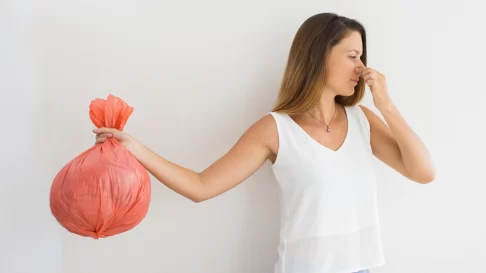




















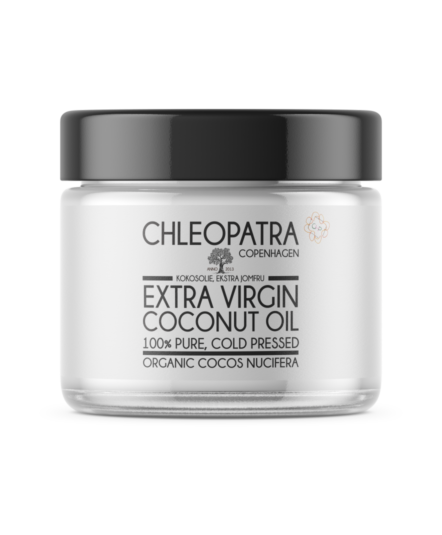



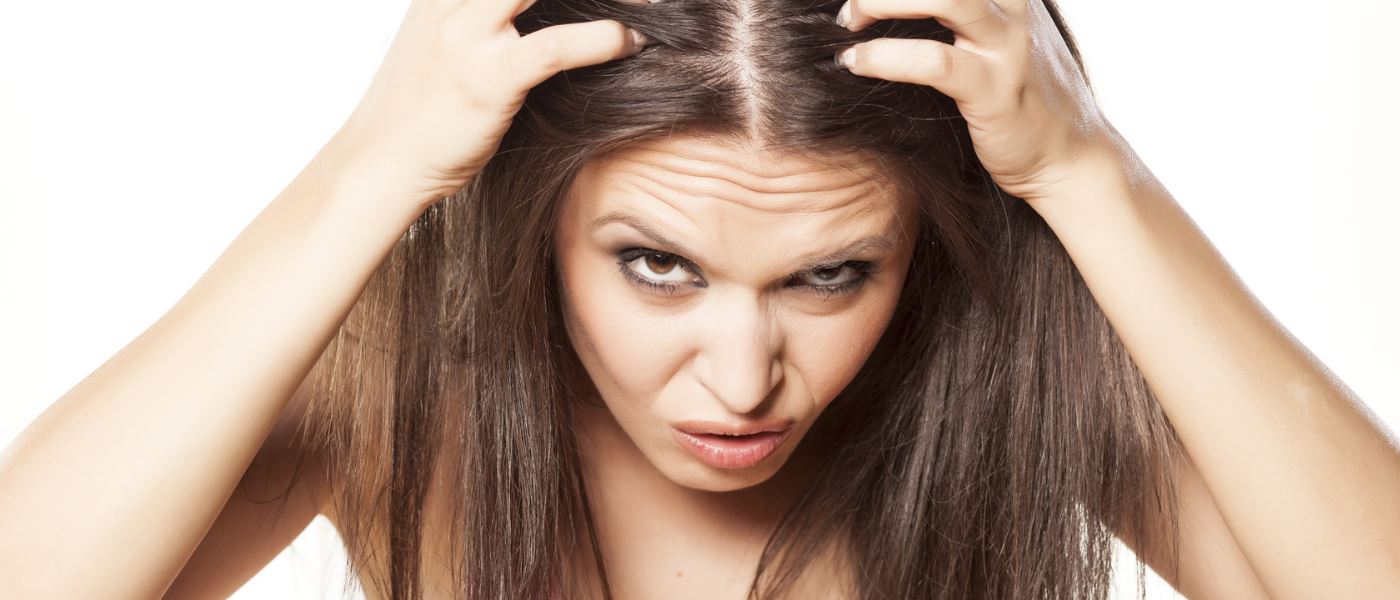


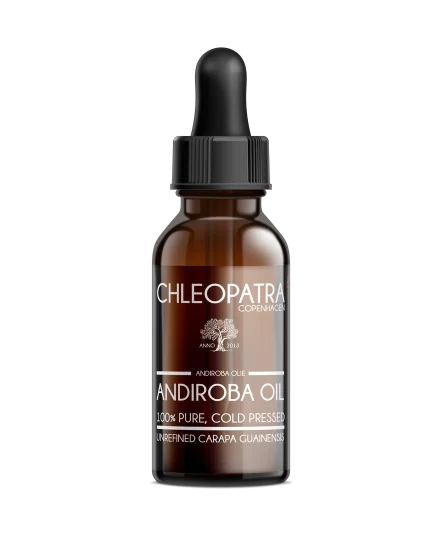



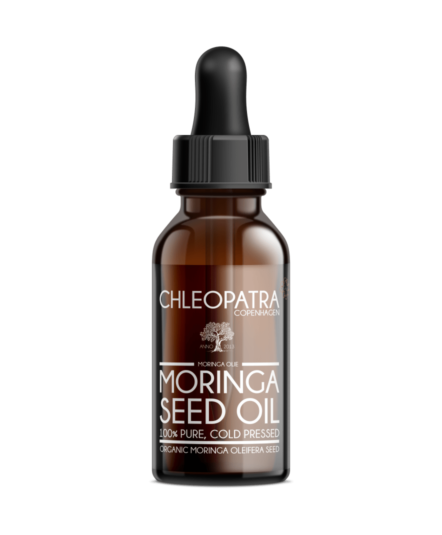

A little tip: I thought I had dry scalp for a long time. My hair didn't behave that way, but my scalp was itchy, so what else could it be. No advice for dry scalp worked. Then I read that Sodium Lauryl Sulphate, which is found in almost all shampoos, can cause itching and even hair loss. I found a natural shampoo made with saponified coconut oil instead of SLS and aloe vera instead of water. After just a few washes, the itching disappeared and I will never use SLS shampoo again. Itching can be a symptom of more than dryness.
Thank you for your input! What is the name of the shampoo you use?